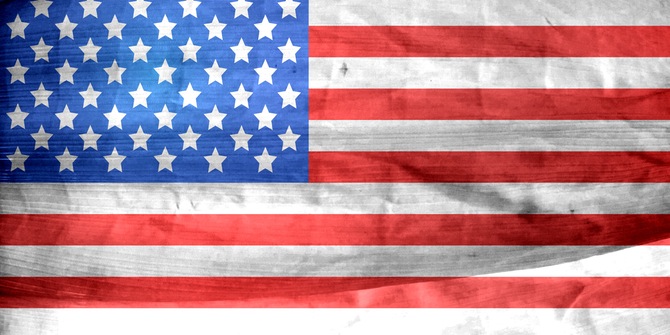According to the US Department of Labor, Labor Day is a “yearly national tribute to the contributions workers have made to the strength, prosperity, and well-being of our country.” With this in mind, USAPP Managing Editor Chris Gilson has collated a topical selection of USAPP’s recent articles on work, workers’ rights, and unions.
Unions don’t just channel the political preferences of their workers, they influence them as well.

 Despite their decline in recent years, unions still play a major role in state and national politics. But are unions able to influence the views of their members, or do those who join unions simply have differing views compared to non-members? In new research surveying more than 4,000 workers across 12 industries, Sung Eun Kim and Yotam Margalit find that unions serve as information providers for the members, and that when it comes to trade policy, they do have a clear influence on their members’ views.
Despite their decline in recent years, unions still play a major role in state and national politics. But are unions able to influence the views of their members, or do those who join unions simply have differing views compared to non-members? In new research surveying more than 4,000 workers across 12 industries, Sung Eun Kim and Yotam Margalit find that unions serve as information providers for the members, and that when it comes to trade policy, they do have a clear influence on their members’ views.
Labor unions’ decline since the 1980s has given corporate management a free hand to make massive, permanent layoffs.
 Until the 1980s most large corporate layoffs meant the temporary suspension of employment, rather than the more permanent downsizing which we know today. In new research which examines nearly 700 layoff announcements over 16 years, Jiwook Jungexamines what led to this change in corporate policy. He finds that the decline of industrial unions led what were once temporary layoffs, which were often followed by recall in better economic times, to become permanent. Though labor unions resisted this shift, their decline meant that firm managers were able to gain an upper hand in making decisions about layoffs.
Until the 1980s most large corporate layoffs meant the temporary suspension of employment, rather than the more permanent downsizing which we know today. In new research which examines nearly 700 layoff announcements over 16 years, Jiwook Jungexamines what led to this change in corporate policy. He finds that the decline of industrial unions led what were once temporary layoffs, which were often followed by recall in better economic times, to become permanent. Though labor unions resisted this shift, their decline meant that firm managers were able to gain an upper hand in making decisions about layoffs.
How the power of Canada’s unions helped slow the growth of inequality.
 As has been the case in the U.S., the level of inequality in Canada has been on the rise since the 1980s, though at a slower rate. In new research, Barry Eidlin explores the reasons behind this divergence. He argues that one major factor which has received little attention is the power of Canada’s unions. He writes that because unions have been able to keep their role and legitimacy as defenders of working class interests, they have largely retained their power. He argues that in order to address inequality, we need to talk more about the growing divide between the wealthy and the working class, and the role that unions can play in decreasing that divide.
As has been the case in the U.S., the level of inequality in Canada has been on the rise since the 1980s, though at a slower rate. In new research, Barry Eidlin explores the reasons behind this divergence. He argues that one major factor which has received little attention is the power of Canada’s unions. He writes that because unions have been able to keep their role and legitimacy as defenders of working class interests, they have largely retained their power. He argues that in order to address inequality, we need to talk more about the growing divide between the wealthy and the working class, and the role that unions can play in decreasing that divide.
Book Review: Save Our Unions: Dispatches from a Movement in Distress by Steve Early
 This book brings together recent essays and reporting by labor journalist Steve Early. The author aims to illuminate the challenges facing U.S. workers, whether they’re trying to democratise their union, win a strike, defend past contract gains, or bargain with management for the first time. Melanie Simms writes that the insider perspective offered in this book will add to our understanding of how and why unions have contributed to the creation of specific patterns of disadvantage and exclusion for workers and for citizens.
This book brings together recent essays and reporting by labor journalist Steve Early. The author aims to illuminate the challenges facing U.S. workers, whether they’re trying to democratise their union, win a strike, defend past contract gains, or bargain with management for the first time. Melanie Simms writes that the insider perspective offered in this book will add to our understanding of how and why unions have contributed to the creation of specific patterns of disadvantage and exclusion for workers and for citizens.
The decline of unions is driving the problem of working poverty in the U.S.
 Even since before the beginning of the financial crisis in 2008, the growing level of poverty in America has been of great concern to government and policymakers. David Brady argues that while most research into the causes of poverty focusses on joblessness, the majority of poor people in the U.S. are working poor. By examining working poverty in the past two decades, he finds that the decline in unionization is closely linked to the rise in poverty. He writes that unions are a pathway to increased economic security for workers, through higher wages and benefits, increased job security and the greater regulation of risks.
Even since before the beginning of the financial crisis in 2008, the growing level of poverty in America has been of great concern to government and policymakers. David Brady argues that while most research into the causes of poverty focusses on joblessness, the majority of poor people in the U.S. are working poor. By examining working poverty in the past two decades, he finds that the decline in unionization is closely linked to the rise in poverty. He writes that unions are a pathway to increased economic security for workers, through higher wages and benefits, increased job security and the greater regulation of risks.
Technology may not be responsible for jobless recoveries

 Since the early 1990s, the US has been plagued by weak employment growth when emerging from recessions – so called ‘jobless recoveries’. Georg Graetz and Guy Michaels look at multiple recoveries elsewhere in the world over a 40-year period to see if the same applies – and whether modern technology is responsible.
Since the early 1990s, the US has been plagued by weak employment growth when emerging from recessions – so called ‘jobless recoveries’. Georg Graetz and Guy Michaels look at multiple recoveries elsewhere in the world over a 40-year period to see if the same applies – and whether modern technology is responsible.
Wage theft is widespread, but politics and policies can play a powerful role in reducing it.
 Wage theft is pervasive in America; in a new study of low-wage workers across the US, Daniel J. Galvin finds that 16 percent were paid less than their state’s minimum wage. He also finds that workers in those states which had greater employment law protections tended to have a lower chance of experiencing wage theft, and that those protections tended to be in states with unified Democratic governments. With Donald Trump’s Labor Department unlikely to do much to address the problem, he writes that workers’ advocates will need to build coalitions and work with Democrats at the state and city level in order to ensure workers are protected from wage theft.
Wage theft is pervasive in America; in a new study of low-wage workers across the US, Daniel J. Galvin finds that 16 percent were paid less than their state’s minimum wage. He also finds that workers in those states which had greater employment law protections tended to have a lower chance of experiencing wage theft, and that those protections tended to be in states with unified Democratic governments. With Donald Trump’s Labor Department unlikely to do much to address the problem, he writes that workers’ advocates will need to build coalitions and work with Democrats at the state and city level in order to ensure workers are protected from wage theft.
Higher minimum wages are associated with greater financial well-being

 Minimum wages have been a contentious issue the U.S., and in several countries across Europe, most notably in Germany, where a minimum wage came into force for the first time at the start of this year. Michael A. Krassa and Benjamin Radcliff present a comparison of 24 industrial democracies. They find that regardless of the size of a country’s economy, its current economic situation, or the time frame chosen, there is clear evidence that higher minimum wages are associated with an overall improvement in the financial well-being of citizens.
Minimum wages have been a contentious issue the U.S., and in several countries across Europe, most notably in Germany, where a minimum wage came into force for the first time at the start of this year. Michael A. Krassa and Benjamin Radcliff present a comparison of 24 industrial democracies. They find that regardless of the size of a country’s economy, its current economic situation, or the time frame chosen, there is clear evidence that higher minimum wages are associated with an overall improvement in the financial well-being of citizens.
Increasing the minimum wage does not necessarily reduce employment
Recent months have seen President Obama make a renewed push to address inequality in the U.S., especially via one policy lever he has focused on previously- raising the minimum wage. For many, conventional economic wisdom states that raising the minimum wage costs jobs, as employers are less willing to take on staff at higher rates of pay. Alan Manningtakes a close look at the economics and the evidence of these claims, finding that one of their basic assumptions, that labor markets are highly competitive, does not hold. He argues that in light of this, and of empirical evidence from academic studies of wages and employment, it is very difficult to claim that wages have a significant effect on employment in either direction.
The Ballpark podcast Episode 1.1: The Strongest Economy for Who?
This week in Episode 1, The Strongest Economy for Who?, we discuss the US’ economic recovery and how its benefits might not have been felt by everyone equally. This episode features interviews with Michael Amior of the University of Cambridge, and the LSE’s Centre for Economic Performance, and Jeff Clemens of the University of California, Santa Barbara.
Listen on Soundcloud
Featured image credit: Courtney Rhodes (Flickr, CC-BY-2.0)
Shortend URL for this post: http://bit.ly/labordy2017








